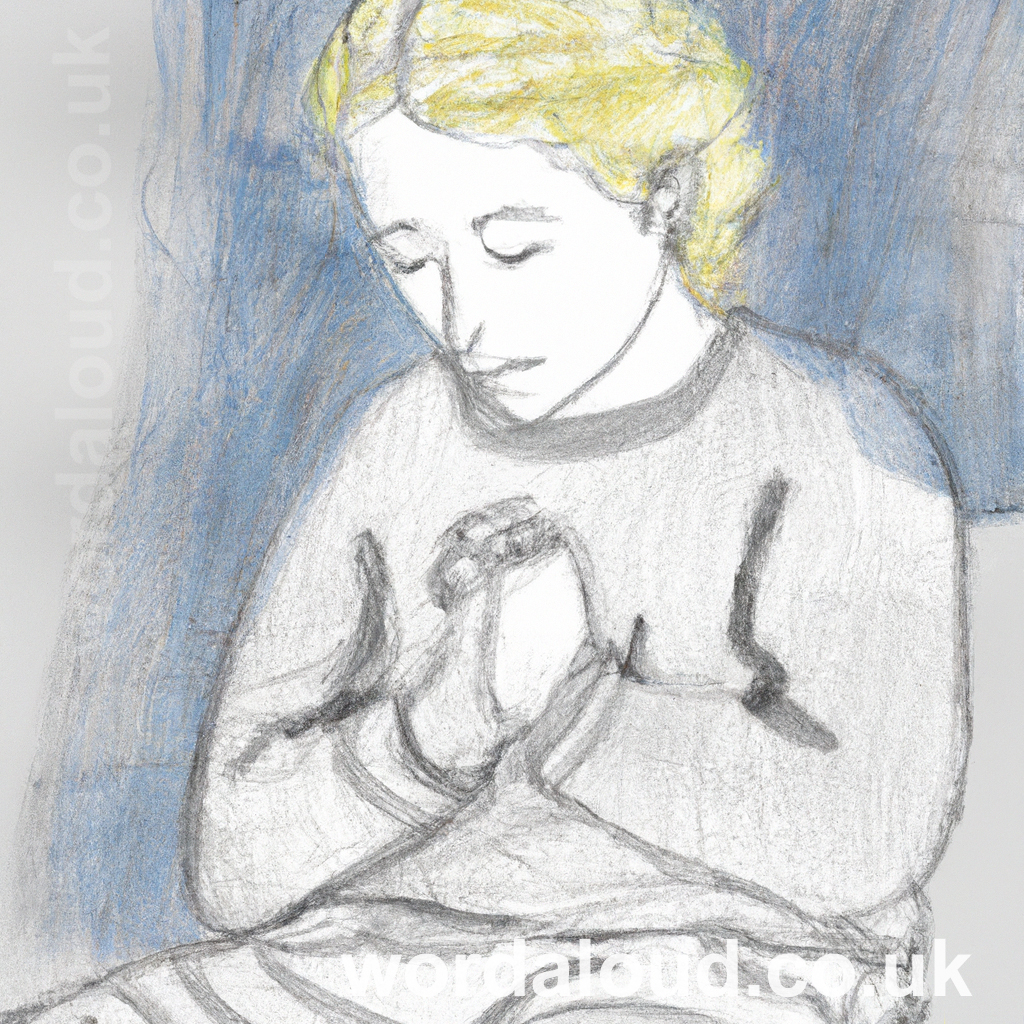Christian Art | Prayer With Jesus | Psalms | Prayer For Preservation From Evil | King David As A Boy | Audio KJV | Love Revealed By Jesus Christ | King James Audio Bible
Psalm 141 | King James Audio Bible
YouTube: Psalm 141 KJV | King James Audio Bible | Word Aloud
Psalm 141, through appeals for divine guidance, protection, and the maintenance of righteousness, expresses struggles and aspirations of the faithful in their journey toward spiritual integrity. Psalm 141 is personal lament and a communal prayer, reflecting universal human desire for divine closeness and support in the face of adversity. Through its vivid imagery, heartfelt pleas, and expressions of trust in God, Psalm 141 meditates themes of prayer, moral integrity, and divine justice.
The psalm opens with a direct address to God. The psalmist implores: ‘Lord, I cry unto thee: make haste unto me; give ear unto my voice, when I cry unto thee.’ This invocation not only sets the tone of urgency but also establishes a personal connection between the psalmist and God. The request for God to ‘make haste’ expresses immediacy of the psalmist’s need for divine intervention.
The second verse, ‘Let my prayer be set forth before thee as incense; and the lifting up of my hands as the evening sacrifice,’ employs vivid imagery to liken the psalmist’s prayer to the ritual offerings in the Temple. This comparison elevates the act of prayer, suggesting that it serves as a spiritual offering acceptable to God. Reference to ‘incense’ and the ‘evening sacrifice’ evokes sensory experiences of worship, linking the psalmist’s plea to communal practices of faith and devotion.
The psalmist articulates a series of requests for personal integrity and spiritual focus in the face of external pressures and temptations. The plea, ‘Set a watch, O Lord, before my mouth; keep the door of my lips,’ reflects deep awareness of the power of speech and the potential for words to cause harm. This request for divine assistance in guarding speech indicates a commitment to righteousness and a recognition of human frailty.
The psalmist expresses a desire to avoid influence of the wicked, stating: ‘Incline not my heart to any evil thing, to practise wicked works with men that work iniquity: and let me not eat of their dainties.’ This verse reveals a concern for moral purity and determination to resist allurements of those who engage in evil. The metaphorical ‘dainties’ represent tempting but ultimately harmful pleasures offered by the wicked, highlighting contrast between temporary gratification and lasting righteousness.
An aspect of Psalm 141 is expression of openness to correction by the righteous, as seen in the verse, ‘Let the righteous smite me; it shall be a kindness: and let him reprove me; it shall be an excellent oil, which shall not break my head.’ This statement reflects humility and willingness to accept reproof for the sake of spiritual growth. Imagery of ‘excellent oil’ suggests that correction by the righteous serves not as a punishment but as a form of nurturing, essential for maintaining spiritual health.
The psalmist contemplates the fate of the wicked, envisioning their downfall as vindication of the righteous. The verse, ‘When their judges are overthrown in stony places, they shall hear my words; for they are sweet,’ conveys confidence in the ultimate triumph of justice and the power of the psalmist’s words to endure beyond the downfall of the unjust.
Toward conclusion of the psalm, the psalmist reiterates reliance on God for protection from plots of the wicked, requesting, ‘Keep me from the snares they have laid for me, and the gins of the workers of iniquity.’ This plea underscores the psalmist’s awareness of dangers posed by the wicked and trust in God as a refuge and defender.
The final verse, ‘Let the wicked fall into their own nets, whilst that I withal escape,’ encapsulates the psalmist’s hope for deliverance and justice. This concluding request not only anticipates self-destruction of the wicked but also affirms the psalmist’s faith in God’s providence and protection.

![]()
Psalm 141 | King James Audio Bible
Lord, I cry unto thee: make haste unto me; give ear unto my voice, when I cry unto thee.
Let my prayer be set forth before thee as incense; and the lifting up of my hands as the evening sacrifice.
Set a watch, O Lord, before my mouth; keep the door of my lips.
Incline not my heart to any evil thing, to practise wicked works with men that work iniquity: and let me not eat of their dainties.
Let the righteous smite me; it shall be a kindness: and let him reprove me; it shall be an excellent oil, which shall not break my head: for yet my prayer also shall be in their calamities.
When their judges are overthrown in stony places, they shall hear my words; for they are sweet.
Our bones are scattered at the grave’s mouth, as when one cutteth and cleaveth wood upon the earth.
But mine eyes are unto thee, O GOD the Lord: in thee is my trust; leave not my soul destitute.
Keep me from the snares they have laid for me, and the gins of the workers of iniquity.
Let the wicked fall into their own nets, whilst that I withal escape.

![]()
Psalm 141 | King James Audio Bible
- Urgency In Divine Help: The psalmist’s immediate and urgent request for God’s attention and assistance highlights a deep reliance on divine support in times of need.
- Prayer As Spiritual Offering: The likening of prayer to incense and the evening sacrifice underscores the sanctity and significance of prayer as a form of worship and spiritual offering to God.
- Guardianship Over Speech: The plea for divine help in controlling speech reflects a consciousness of the power of words and the importance of using them wisely and righteously.
- Resistance To Evil Influences: The psalmist’s desire to avoid the enticements and practices of the wicked emphasizes a commitment to moral integrity and the challenges of living righteously amidst corruption.
- Openness To Righteous Reproof: Valuing correction from the righteous as a means of spiritual growth and integrity demonstrates humility and the value placed on communal accountability in the faith journey.
- Divine Justice And Protection: The anticipation of the downfall of the wicked and the deliverance of the faithful highlights a belief in divine justice and the protective care of God for those who are righteous.
- Trust In God As Refuge: The repeated requests for protection from harm and the snares of the wicked reveal a profound trust in God as a safe haven and defender against malevolence.
- Consequences Of Wickedness: The expectation that the wicked will be ensnared by their own devices serves as a warning against evil deeds and a reassurance of the inevitability of divine justice.
- Personal Integrity In Adversity: The psalmist’s emphasis on personal holiness and ethical conduct, even in difficult circumstances, underscores the theme of maintaining spiritual and moral integrity in the face of adversity.

![]()








